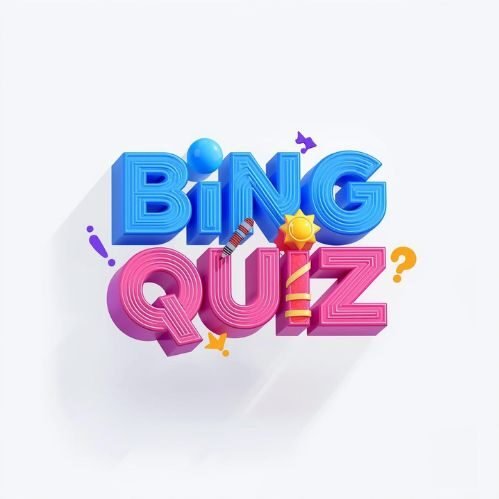Imagine if one of the most beloved sitcoms had never made it to your screen. It’s wild to think about, but The Big Bang Theory, the show that took geek culture mainstream and turned physicists into TV icons, was on the verge of rejection early on. Behind the laughter, the quirks, and Leonard and Sheldon’s endless banter, there was a real struggle to get greenlit, something that’s hard to picture now.
The Big Bang Theory didn’t just burst onto the scene effortlessly. The premise—four socially awkward scientists who find themselves navigating friendships, romance, and everyday life—might sound simple today, but back in the mid-2000s, it felt like a risky gamble. Shows about nerd culture barely existed, and the idea that audiences would flock to characters defined by their intellect and scientific obsessions seemed, at best, a niche concept. Networks didn’t know for sure if viewers wanted to watch people talk about string theory or comic books.
Chuck Lorre and Bill Prady, the brains behind the concept, had their work cut out for them. They weren’t newcomers—they’d both been part of the TV writing world, but this project was personal. They wanted to shake up what a mainstream sitcom could be, and in doing so, challenge stereotypes around intelligence and social awkwardness. But the major networks were skeptical. Lots of executives questioned whether the characters would connect with a general audience or simply alienate them with “too much science talk.”
Why the hesitation? The early 2000s TV landscape was slick and often centered on relatable yet broadly appealing characters. Seems like an odd thing today, but nerds historically were kept on TV sidelines as caricatures, if they appeared at all. Breaking down that barrier was risky. Would people laugh with the characters or at them? Would the scientific jargon drown the humor? The network executives weren’t just wary—they nearly shot the pilot down before it even aired.
What saved The Big Bang Theory from extinction in those early days? One major factor was the casting, specifically Jim Parsons as Sheldon Cooper. His portrayal was electric; he made Sheldon’s offbeat brilliance and social eccentricity captivating rather than alienating. Parsons brought an authenticity that gave critics and audiences something fresh and intriguing. Had that casting choice been different, it’s possible the show wouldn’t have grabbed the attention it did.
The pilot episode itself underwent several tweaks after initial feedback, reflecting a lot of behind-the-scenes adjustments. For instance, some early test audiences found the scientists too “one-note” or “too nerdy.” Producers and writers worked hard to add layers—quirks balanced with warmth, awkwardness offset by genuine moments of connection. The characters had to feel human… lovable even, in a way that transcended their science geek status.
One fascinating tidbit is that before settling on The Big Bang Theory, the creators pitched alternative concepts with varying degrees of “nerdiness.” The process involved fighting industry norms and prejudices about what audiences “wanted.” Today, with superheroes dominating screens and numerous shows celebrating intellect, it seems unbelievable this would have been questioned so heavily.
This also flags an interesting point about creative risks and gatekeeping in television. Who decides what stories are worthy? Sometimes it takes a pushy, passionate creator to fight for something unconventional. Lorre and Prady leaned hard into their conviction that showing quirky, brainy people could resonate because everyone has felt like an outsider or a misfit at some point.
Looking at the broader landscape, it’s worth noting how The Big Bang Theory’s near-rejection mirrors others in entertainment whose initial value was underestimated—think Breaking Bad or Seinfeld for that matter. These stories remind us that innovation often comes with initial resistance. It begs the question: how many great shows or ideas never get a chance because they didn’t seem “mainstream” enough?
In terms of broader cultural impact, The Big Bang Theory ended up doing much more than breaking even—it changed the calculus for network TV. Suddenly, embracing niche interests and intellect became lucrative. Scientists got their spot on the cultural stage; audiences discovered humor in quantum physics jokes and references to comic book lore. The show dismantled clichés and showed there were millions hungry for character-driven comedy rooted in reality, not just sitcom stereotypes.
Even beyond its humor, the show’s path to acceptance highlights how societal conceptions shift. We’re more open now to diverse stories, including those about intellectualism and social awkwardness, but less than two decades ago, it was a hard sell. It’s a reminder not just of the show’s value but the evolving nature of entertainment and the creative risks required to push boundaries.
If you want to dive deeper into the origins and lasting appeal of The Big Bang Theory, the Smithsonian Institution’s collection on television history offers some solid insights at https://americanhistory.si.edu/collections/object-groups/television-history. Their archives reveal fascinating context about sitcom evolution and cultural shifts through the decades.
Interestingly, while the show’s initial skepticism is well documented, fans today rarely think about it when binge-watching episodes. The risk paid off so handsomely, it’s easy to assume the show was an instant hit, but reality says otherwise. This is a good lesson for anyone trying to get unconventional projects off the ground. Rejection is often part of the process.
If you feel like testing your recall about surprising TV facts and anecdotes like this, you might enjoy a clever challenge on the most current entertainment trivia by trying out the latest quiz centered on television history at the Bing Home Quiz page. It’s an engaging way to see how much you really know about your favorite shows’ backgrounds.
So, what would the pop culture landscape look like if networks had stuck with their initial doubts about The Big Bang Theory? Without it, would geek culture have exploded as it did? Would phrases like “Bazinga!” have entered our everyday lexicon? It seems almost impossible to imagine now, but it’s proof the industry’s gatekeepers sometimes need a wake-up call—something that ambitious, outside-the-box shows can provide.
Disclaimer: This article reflects a narrated perspective based on available public information about The Big Bang Theory and does not claim to represent insider accounts or unpublished production details. Any opinions expressed are for informational and entertainment purposes only.

